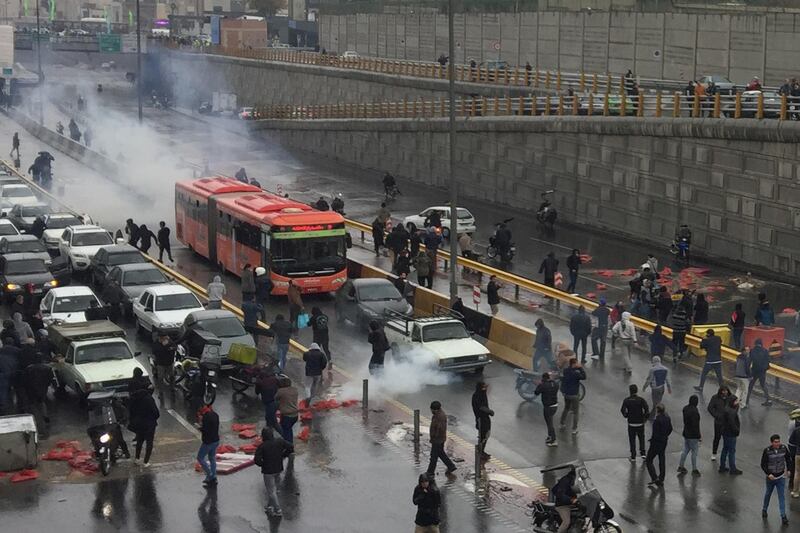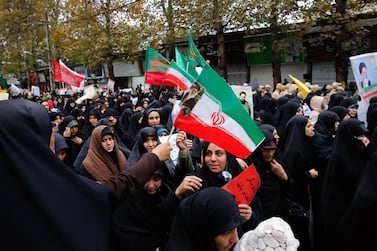Iran's Revolutionary Guard on Thursday praised the armed forces for a crackdown on nearly a week of protests across the country in which at least 100 people are believed to have been killed.
A statement on the Guards' official website suggested calm had been restored unrest triggered by a sudden hike in petrol prices last Friday in which police stations were attacked, petrol pumps torched and shops looted.
"Incidents, big and small, caused by the rise in petrol price took place in [a little] less than 100 cities across Iran," said the statement said. The "incidents were ended in less than 24 hours and in some cities in 72 hours" as a result of the "armed forces' insight and timely action".
Protest leaders were arrested by the Guards' intelligence arm in the province of Tehran and Alborz as well as in the southern city of Shiraz, the statement said, which had "contributed significantly to calming the situation".
The United Nations human rights office has expressed alarm over reports that live ammunition had been used against the protesters, causing a "significant number of deaths".
Iranian officials have confirmed five deaths: four security personnel and one civilian.
Rights group Amnesty International said more than 100 demonstrators were believed to have been killed and that the real toll could be as high as 200.
Iran's mission to the UN disputed the Amnesty toll, saying in a tweet that figures "not confirmed by the government are speculative" and in many cases a "disinformation campaign waged against Iran".
Iran has blamed the protests on a plot by foreign enemies and cut off internet services to contain the unrest, making it difficult to ascertain the death toll.
On Thursday, state TV showed footage of what it said were spontaneous pro-government rallies to celebrate that the conspiracy had been defeated.
Crowds chanted slogans such as "death to seditionists, death to America" and "the blood in our veins is a gift to our leader" in cities including Qom, Isfahan, Shiraz, Bandar Abbas and Kerman.
Iran's ambassador to Britain Hamid Baeidinejad called those who had attacked public property "organised armed rioters" in a tweet.
He also said they had planned to "detonate Asaluyeh refinery" in southern Iran and to "sabotage the national phone system".
The secretary of Iran's Supreme National Security Council, Rear Admiral Ali Shamkhani, was quoted by the Mehr news agency as saying "every single one of the rioters, wherever in Iran they may be, will be identified and punished".
It was the powerful national security council that decided to cut off internet access, according to semi-official news agency ISNA.
The agency said internet access and connectivity to platforms such as WhatsApp and Instagram had been restored in the southern province of Hormozgan, but this could not be immediately verified.
Iran's telecommunications minister said on Wednesday the outage had caused some local businesses a "90 per cent drop in transactions" and forced some Iranian companies dealing with foreign partners to temporarily shut down.
Reformist MP Ali Motahari argued that "continuing the internet blackout is not necessary, since calm has returned to the country". He said parliament would "react" if the outage continued.







